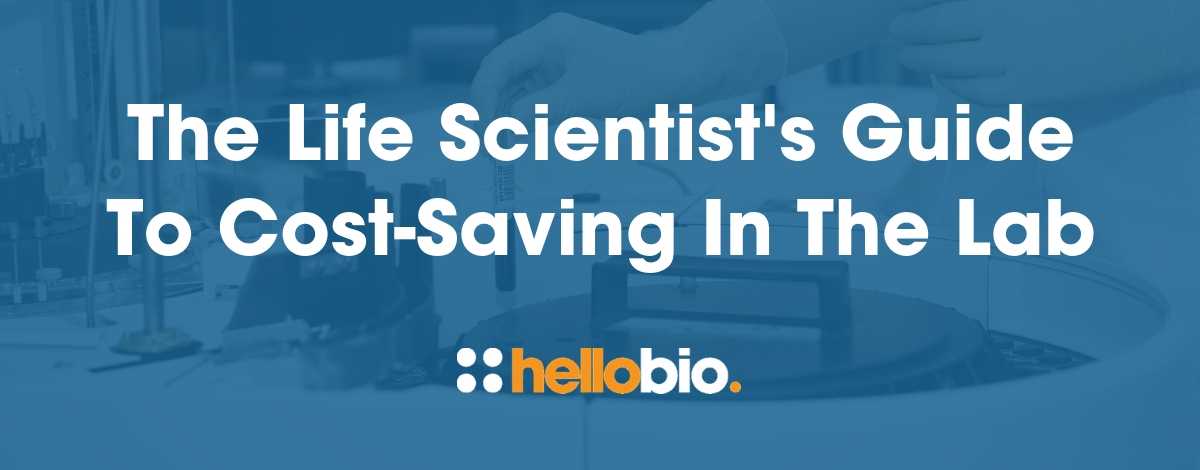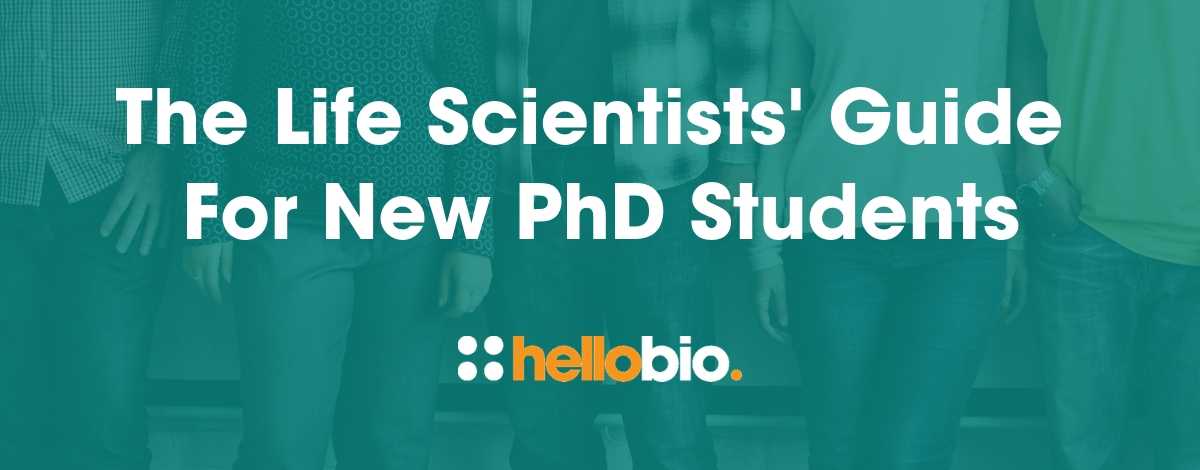Meet Our Lab Heroes Awards-TM 2019 Winner: Jaana van Gastel
We’re delighted to introduce our Lab Heroes Awards TM 2019 winner, Jaana van Gastel, following so many incredible nominations from her colleagues who told us about her motivation, efficiency, hard work, supportive nature, knowledge, dedication, academic achievements, leadership capabilities and more.
Jaana completed her Master’s in Biomedical Sciences with Honors at the University of Antwerp in Belgium. After graduating, she started a PhD in the Receptor Biology Lab of Professor Dr. Stuart Maudsley concerning GPCRs in age-related disorders. In addition, Jaana has worked at the Medical University of South Carolina, USA, with Dr. Louis M. Luttrell during a research internship. She presented her work at the annual Center for Proteomics Meeting in 2016, as well as the annual American Society for Biochemistry and Molecular Biology Meeting in 2018 and 2019. Jaana has also helped organize the VIBes 2017 conference and has published 13 papers during her three short years as a PhD student.
We spoke to Jaana about her win, her current research, the challenges facing life science researchers, and her advice for fellow scientists.
Congratulations, Jaana! How did it feel when you found out that so many of your colleagues had nominated you as their Lab Hero?
I was very pleasantly surprised, especially as the nominations not only came from our lab, but from other groups in the University. This kind of support is an amazing feeling, and a great extra motivation for my last months as a PhD student.
How did it feel when you found out you were our Lab Heroes winner?
I feel… humbled. It’s wonderful so many of my colleagues have shown their appreciation of my hard work. It’s the perfect Christmas present.
Why do you think it’s so important to champion life science researchers, and what more could be done to show life scientists recognition?
The Lab Heroes Awards is already a fantastic start. I think it’s great that people can get rewarded for their work like this, and it’s great motivation when you get nominated. While I fully support the recognition of life scientists, I have no grand ideas of how to do this. I think one of the most important things in this day and age, is to humanize scientists, let people who are not scientists see that we are all just people doing all we can to better our understanding of the world with the best intentions.
What are you planning on using your Hello Bio vouchers and travel grant for?
As we are investigating aging and age-related disorders through proteomics, we will most likely use the vouchers to buy cell imaging reagents, and reagents connected to amyloidogenesis, apoptosis and cell cycle control.
The travel grant will most likely be used to visit Experimental Biology 2020 in San Diego.
Did you always want to be a scientist when you were younger, and why?
Yes, however the type of scientist changed constantly. When I was little, marine biologist was number one. However, I suffer from severe seasickness, and I was told this would be an issue! When I got older I enjoyed solving different types of puzzles, which I then connected to finding the missing puzzle pieces in different unknown processes we are now investigating further.
Tell us a bit more about what you're working on in the lab at the moment…
My PhD project surrounds the investigation of G protein-coupled receptor function in aging and age-related disorders. While these receptors have long been thought to only function through G proteins, it has been discovered that they are also able to engage other downstream effectors, such as the first identified: β-arrestin. We however have identified a third possible downstream effector, which has been directly associated with the aging process. As such, potentially by identifying ligands which show a bias towards this novel downstream effector, we could treat or even eliminate age-related disorders such as Alzheimer’s disease, Type 2 Diabetes Mellitus, and cardiovascular disorders.
What does a typical day in the lab look like for you?
That’s one of the fun things about my research, I don’t really have a typical day. Every day brings something new. A lot of my work is performed in cells however, so I’ll spend a couple of hours per day in the cell lab, and most days I do perform a western blot or two. If I don’t have any work in the lab, I will be behind my computer to analyze the proteomics data.
What is it about your field of research that gets you most excited?
The bioinformatics analysis. I love getting a protein dataset and trying to make sense of it, and then being able to validate these using simple experiments. I also love to assemble all the data into one paper, which I think is why I had fun writing my dissertation while I saw many of my peers start to get stressed at this point. At some point everything started to click, and that is amazing.
What do you think are the biggest challenges facing life scientists at the moment?
When we see what is happening to the world, I think the biggest challenge is being taken seriously. We as scientists learn more and more every day, but we lack the skill to decently convey this information to the rest of the population. And if we do, it is taken out of context and warped to fit a specific story.
What advice would you give to life scientists just starting out in their careers?
Believe in yourself, you are good enough, and you will do great things. Remember to write down everything you do, and that mistakes happen to the best of us. Take care of yourself as well as your research. While the work is important, your mental health is just as important. Be honest with yourself and with everyone around you. Always keep an open mind, and be ready for a discussion.
So many people who nominated you commented on the extraordinary amount you manage to achieve. What are your top tips for managing so many different projects and responsibilities effectively?
I think one of the most important things is to plan everything you have to do. Take half an hour on Friday to plan out the next week, and 10 minutes per day to check your schedule, and whether adaptations need to be made. Acquaint yourself with the protocols to be used: is everything you need present? Do you need any help?
If you have students, give them a time slot in which they can ask you questions and you can discuss the work they have performed. If necessary, delegate work that can be performed by others.
What’s your favorite science quote?
It’s not necessarily a science quote but it was very applicable to my research. From the book Name of the Wind, written by Patrick Rothfuss:
“...Bitter."
“That’s how you know it’s real medicine,” I said. “If it tasted good it would be candy.”
“Isn’t that the way of the world?” she said. “We want the sweet things, but we need the unpleasant ones.”
What do you think is the greatest scientific discovery of all time?
That’s a top difficult question, it depends on what you as a person value most, or as a scientist what field you’re in. So many great discoveries are being made every day, and whilst I am myself a neuroscientist, I would say at this moment the most innovative discoveries are made in environmental science. Now to apply them into our society.
________________________________
Thank you so much for a wonderful interview, Jaana! And congratulations once again! We wish you all the very best with your PhD, and we look forward to keeping in touch.
Jaana’s research funding comes from FWO: Fonds wetenschappelijk onderzoek.
You can connect with Jaana on social media in the following places:
And you can meet all our Lab Heroes AwardsTM 2019 prize-winners here.
________________________________
As well as supporting and recognizing scientists through our Lab Heroes AwardsTM , we also offer other resources for scientists on our blog. We are passionate about supporting life scientists, early career life scientists and PhD students - with really low- priced reagents and biochemicals, travel grants, and resources to help with both personal and professional development. We know how tough it is - so we hope you find these helpful!
Advice & guidance for life scientists
Click below to view our of essential guides and articles includes to support life scientists, PhD students & early career life scientists:
Travel grants
Every month we give away $500 to PhD students and Postdocs so that they can attend a scientific conference - click below to find out more:
Wellbeing for scientists
Click below for our resources to help improve your wellbeing:
Technical resources
Try our Molarity Calculator: a quick and easy way to calculate the mass, volume or concentration required for making a solution.
Try our Dilution Calculator: an easy way to work out how to dilute stock solutions of known concentrations
Click below to see our Mini-reviews, Pathway Posters & Product Guides: a set of technical resources to answer your questions on a wide range of topics and to help you get started quickly.

And - when you get to the stage of planning your experiments, don't forget that we offer a range of agonists, antagonists, inhibitors, activators, antibodies and fluorescent tools at up to half the price of other suppliers - click below to see how we compare with other suppliers:




















